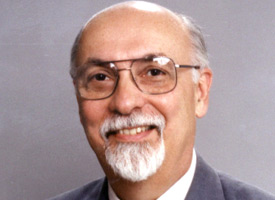With Dr. Bruce Hartung
This month’s “Pressure Points” continues the discussion in the January column about bullying and the church. There ha
Mirroring the “culture wars” of our society, within each congregation are groups of members with radically different ideas or “visions” of what congregational structure, worship forms and the ministry of the pastor and other workers in the congregation should look like. Those positions are often not based on Scripture but purely on personal preference or congregational tradition.
The “my way or the highway” mentality seems to emerge from both sides in times of disagreement. In our Facebook culture, when someone displeases us we simply “unfriend” them, with no consideration given to that person’s own needs and ideas.
That mentality does extend into our church life, as well. If the pastor doesn’t preach, look, sound or act according to our preference, let’s just find a way for him to be gone. On the other side, pastors and ministry teams, too, fall prey to the temptation to relationally write off members who seem to be stubborn, oppositional or downright antagonistic, without really getting to know those members in depth or [trying] to understand their point of view. …
If situations like the ones you highlight are to be resolved, a basic change of mind is necessary. Those involved must begin to ask … “What is best for the body [of Christ]?” not “How do I get my way?”
This is well said. In an increasingly polarized society, our congregations and workers will naturally be affected and without necessarily discerning this, will increasingly behave consistently with the culture. Bullying comes in when we seek power to demean, hurt or obliterate those who are not with us. We move from working together on a common problem (with our energy directed toward problem-solving) to battling each other (with our energy directed toward getting in a power position). Often, when the battle is “won,” then power continues to be used in bullying and destructive ways. There is old wisdom that suggests we do not really know the depth of a person until they have power.
An alternative to all this is indeed, as you say, coming to more deeply know the other person or people and focusing on building the strength of and relationships in the body of Christ — the community given to us. Central to all that is coming together at the foot of Christ’s cross as fellow beggars before God. God’s Holy Spirit will then lead us.
The church’s greatest treasure, Christ, is replaced with the focus on money and desire. Self-righteousness, the need to be in power and control, self-pity, jealousy and judging are blinding “church bullies” into thinking that by blaming, disrespect, twisting the truth and getting their way, they will feel better about themselves. … Typically, they see themselves as never wrong and therefore have difficulty forgiving others. They don’t even know that this is what they are doing. They think they are “right” and doing the right thing. …
May we humble ourselves and fear God. … Let us put on the full armor of God in order to together stand up against such attacks from church bullies. Embrace the living Word.
At our core, we are all bullies. All of us, myself included, are capable of this.
Our discernment is to be aware of when our capability becomes our behavior. This is self-awareness born of conversation within the body of Christ, of mutual admonition and consolation, of prayerful engagement with the other for whom Christ died. I believe it demands openness to feedback from others, as well as transparency. God’s Spirit keeps me from being a bully by reminding me that instead of bullying me, the Word became flesh and continues to love and care for me, as God does for others as well.
The Rev. Bruce M. Hartung, Ph.D., is professor of Practical Theology and director of the M.Div./Alternate Route programs at Concordia Seminary, St. Louis. He can be reached at hartungb@csl.edu.
Posted March 1, 2013
